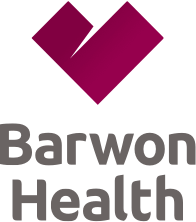Tackling care gaps in mental health
Mental health has recently been a topic of much discussion in our community, with high demand for services accentuated during the pandemic. There is a wave of hope across the sector in response to the commitment to implement the recommendations of the Royal Commission into Victoria’s Mental Health System earlier this year. The recent State and Federal Government budgets provided a much-needed boost in resourcing for mental health care.
As we embark on these reforms it will be critical to listen to the community and understand what people are seeking and to treat consumers with dignity and respect and work together to fulfill mental health care needs across the community.
At Barwon Health, there are multiple major projects underway to improve mental health care provision for the Geelong region. As the Interim Director of CHIME, I’m pleased to be in a position to establish this new research partnership that will help drive evidence that will change treatments and services for our community. With the Royal Commission’s focus on continuous improvement, there is so much that can be accomplished by working alongside experts in the research field to benefit our healthcare systems.
Barwon Health is working hard to improve healthcare outcomes for mental health consumers and carers, with a focus on learning and growth now guiding much of our planning. The Change to Improve Mental Health Translational Research Partnership (CHIME) with Deakin University combines the clinical work in our community with the University’s established research credentials and international reach. This joint approach will focus on innovations that improve mental healthcare for consumers and carers in rural and regional Victoria. The trusted connections we have with consumers will be vital to finding research outcomes that make a true difference. The partnership will allow our staff to rapidly respond to trial results and implement changes in clinical treatments, ensuring we continuously improve services and options for recovery, based on proven research evidence.
Research starts with the idea that we can improve care, which can then be tested, improved, and applied to our services directly, shortening the time that it might normally take for new discoveries and innovations to benefit our consumers and carers.
A great example of this is the CALM research trial, funded by the Medical Research Future Fund. Announced last October, this study is led by Associate Professor Adrienne O’Neil from Deakin University’s Institute for Mental and Physical Health and Clinical Translation (IMPACT) with partners at Barwon Health, GMHBA, Diabetes Victoria and the Australasian Society of Lifestyle Medicine. The CALM study is being delivered in partnership with CHIME, as one of its first major projects with the Barwon community. The premise of the study is that the benefits of lifestyle factors such as diet and exercise are widely understood when it comes to physical health and wellbeing, but there is less known about how nutrition and active lifestyle can be used to complement mental health care. The CALM study will build evidence and introduce these adjunctive, innovative therapies alongside traditional therapies, including medication, that are typically used to treat mental health disorders such as depression and anxiety. Researchers and clinicians working together through this study will help us implement the findings with more confidence, determining the long-term need for this type of approach to be provided within routine care, and the funding of the specialised workforce to enact this type of care. While most people know that you feel better after exercise and by eating well, we expect that embedding evidence-based therapies into our clinical practice will improve mental health outcomes to the same extent as established therapies, such as psychotherapy, after the completion of this trial to enhance recovery and long-term wellbeing.
As we acknowledge and address the gaps in treatment and care, it will become increasingly important to open up more opportunities to develop evidence for better treatments, services and diagnostic methods around mental health. CHIME will not only help us build up research capability in these key areas, but it will also aid our efforts to attract and retain the best mental health clinicians and researchers to our region.
There is much to be excited about at Barwon Health, with new programs and capital works, including the newly announced Central Geelong Mental Health Hub, that show a true commitment to improving mental health, and CHIME is a key part of this effort to improve outcomes and opportunities that will enable people in our community experiencing mental ill health to live their best lives.
Renae Carolin, interim director of CHIME (Change to Improve Mental Health)
Filter by tags
- University Hospital Geelong
- barwon health
- Emergency Department
- Geelong
- mental health
- research
- Deakin University
- funding
- cancer
- community
- careers
- Barwon Health North
- Andrew Love Cancer Centre
- surgery
- Norlane
- Northern Suburbs
- safety
- McKellar Centre
- Advance Care Planning
- rehabilitation
- women's health
- jobs
- awards
- kidney
- Barwon Health Foundation
